School fee limits: CADD notifies new rules for fee determination
Claims it took schools into confidence, which other side denies.
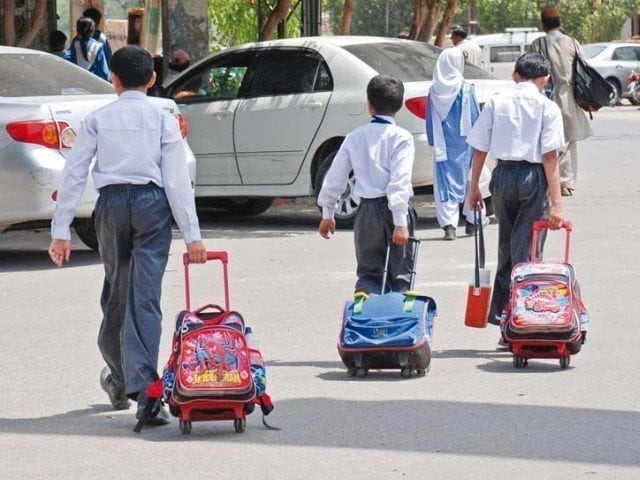
Claims it took schools into confidence, which other side denies.
The rules, notified on Wednesday, have set an upper limit for monthly fees of Rs8,350 for matric, FA and FSc, and Rs12,525 for O’ and A’ levels.
The Private Educational Institutions Regulatory Authority (PEIRA) will implement the rules, which will come into force immediately. The previous rules from 2006 have been repealed.
The rules have been formulated in the wake of fee hike by private schools in September 2015. The government had to intervene after protests by parents and froze fee hikes. The schools, however, challenged the government order in the Islamabad High Court (IHC). Earlier this month, the court ruled in the schools’ favour, setting aside the government notification and allowing schools to determine fees.
During the hearings, parents argued that they could not afford to keep sending their children to private schools, while the schools countered by saying that the government was using them as a scapegoat to divert attention from its own abject failure to provide quality education.
Education is a fundamental right according to the Constitution of Pakistan, and provision of free education is a duty of the state.
A teacher at a high-end private school told The Express Tribune that if the government were to provide quality education in public schools, there would be no way that schools such as her employer could charge the kinds of fees they do. She opined that attending a private school is a luxury, not a basic right, and that parents should have filed suit against the government for providing poor quality education, or enrolled their kids in cheaper schools if they were worried about high fees.
Still controversial
The RFDR notification issued by CADD claims the rules were formulated after extensive consultations, with all stakeholders, including parents, schools, and financial experts.
A representative of the Private Schools Association Islamabad (PSAI) denied this.
PSAI President Zofran Elahi said they were not consulted on fee determination, nor were the rules applicable.
“Nowhere in the world do governments put limits on fees for schools providing luxurious facilities to students,” he claimed.
The IHC had also said in its recent decision that the fees should be determined according to facilities offered by schools, he added. The government can regulate the sector only by subsidising schools offering quality education and raising the standard of government institutions, Elahi said.
According to the new rules, a school with the capacity of 500 or more students from montessori to higher secondary level, air-conditioned classrooms, an average teacher salary of Rs50,000, and Rs1,000,000 monthly commercial rent for the building, can charge up to Rs8,350 monthly for matric, FA, FSc, and Rs12,525 for O’ and A’ levels. The ceilings are inclusive of all charges.
The notification claims to provide relief to parents and also protect the interests of school operators and investors by incorporating a five-year average return-on-investment of 20 per cent.
The rules would also allow schools which feel that they provide facilities well beyond the benchmarks to submit proposals for higher fees with PEIRA and justify them with formal expenditure and financial statements.
The new rules provide that institutions seeking registration with the authority at primary level shall have infrastructure capacity for at least 160 students, 220 students at middle level, 260 students at secondary level, and a minimum of 300 students at higher secondary level. The maximum permissible strength in any classroom has been sat at 30 students.
The rules also require tuition centres and day care centres to register with PEIRA so that it may include them in biennial performance evaluations.
The rules bar private institutes from product-tying with any specific shop for uniforms, books, or stationary.
The rules also direct schools to set up parent-teacher syndicates to decide on disciplinary action against students, examine and review service contracts and staff grievances.
Published in The Express Tribune, June 24th, 2016.

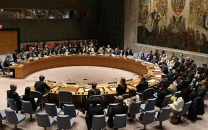
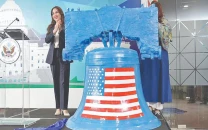
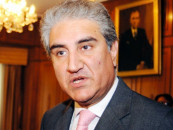
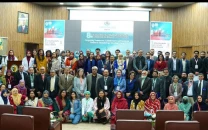














COMMENTS
Comments are moderated and generally will be posted if they are on-topic and not abusive.
For more information, please see our Comments FAQ